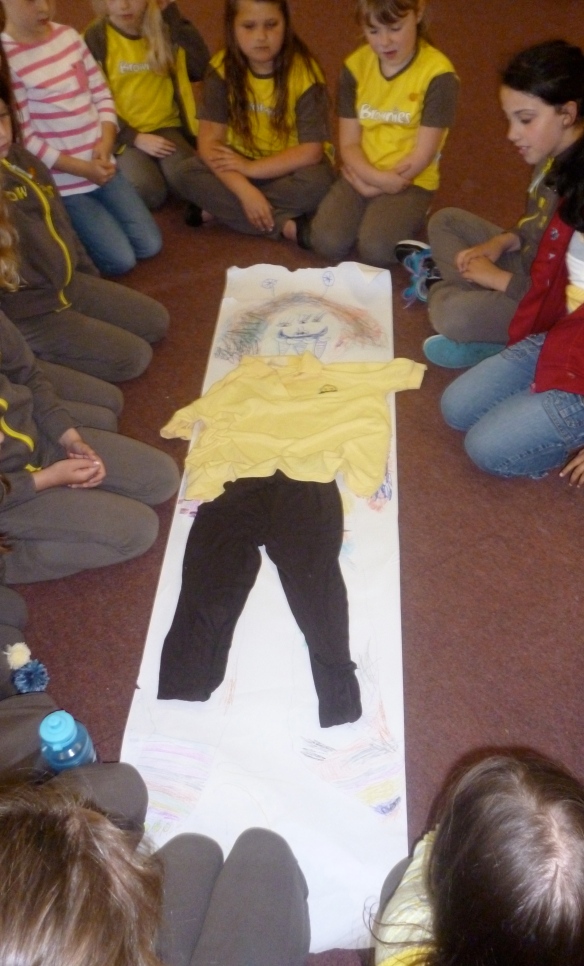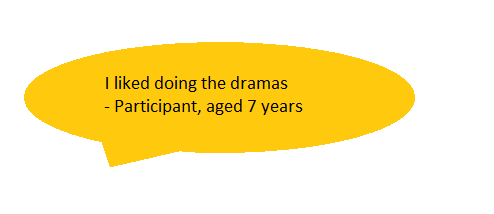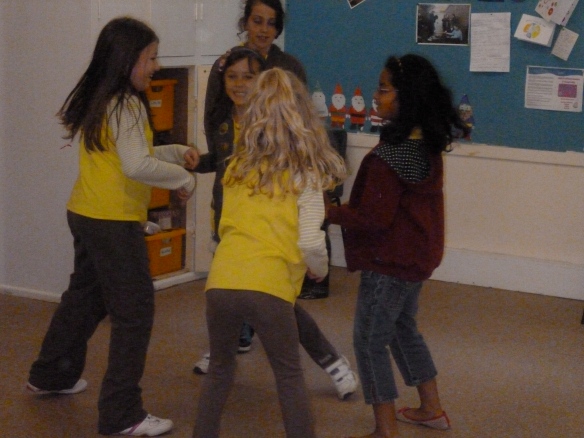A recent report, published in Brookes’ Faculty of Health and Life Sciences Research Update on the workshops may be read below, or by following the link above to a PDF copy of the Research Update. More details about the workshops’ content may be found underneath the report.
 These workshops form part of a Public Engagement Initiative, sponsored by the Faculty of Health and Life Sciences at Oxford Brookes University. The workshops are offered free of charge (on a first-come, first-served basis) to primary state schools and youth groups in Oxfordshire. All primary schools and youth groups (within or outside Oxfordshire and/or the state sector) should feel free to email me (sianjones[at]brookes.ac.uk) to discuss workshop arrangements.
These workshops form part of a Public Engagement Initiative, sponsored by the Faculty of Health and Life Sciences at Oxford Brookes University. The workshops are offered free of charge (on a first-come, first-served basis) to primary state schools and youth groups in Oxfordshire. All primary schools and youth groups (within or outside Oxfordshire and/or the state sector) should feel free to email me (sianjones[at]brookes.ac.uk) to discuss workshop arrangements.
The workshops are devised to engage children (aged 5-11 years) and their teachers with the latest findings from a research project looking at bystanders’ behaviour on the playground, through an interactive friendship workshop.
The research project in question shows that (a) peer groups and peer group membership can change the way that nastiness between classmates is perceived, and (b) that having someone in your friendship group who will speak out against nastiness (rather than stand and watch) is beneficial to psychological adjustment.
Workshop activities are tailored to meet the different needs of children aged 5-11 years. There is no reading or writing necessarily involved in taking part.
Content of the workshops
Each workshop has two parts. One is a whole school assembly, suitable for all primary age children, and the second part is suitable for classes of 25-30 children.
 One school visit, encompassing one assembly, and up to four class visits may be done in one day.
One school visit, encompassing one assembly, and up to four class visits may be done in one day.
Part 1 – Whole Class Assembly (10-15 minutes)
 This introduces children to thinking about the effect of nasty comments on children, and possible motivations for such comments, through a story about some classmates, and an interactive demonstration that friendships are easily broken, but take time to mend.
This introduces children to thinking about the effect of nasty comments on children, and possible motivations for such comments, through a story about some classmates, and an interactive demonstration that friendships are easily broken, but take time to mend.
Children are asked what the targeted child (a) might feel, and (b) could do about what was happening to her. Speaking out against nastiness is reinforced. Children are asked at the end of the assembly to think of one kind thing they could do or say to someone else during the rest of the day before being dismissed.
Part Two – Classroom activity (1 hour)
Each activity follows a five-minute ice-breaker session with the class.
Key Stage Two: Children often claim that what one child sees as nastiness was “just banter”. In this session, children are presented with a series of vignettes involving humour use, which might constitute nastiness(e.g., “you laugh at a friend’s new haircut”).  Children move to different points in the room reflecting their opinions of the vignette (e.g., “OK”, “wrong”, “right” “depends”. The class discusses each vignette in turn.
Children move to different points in the room reflecting their opinions of the vignette (e.g., “OK”, “wrong”, “right” “depends”. The class discusses each vignette in turn.
Key Stage One: Children are asked for words that describe being a good friend, and their opposites.
They are asked to get into pairs and decide “what is friendship”, and “do best friends ever argue”. They then feed-back.
Following this, the children are asked to devise, in small groups, a drama sketch that shows how arguments between friends may be resolved. The sketches are watched by the class.
Workshop Equipment
I bring with me the materials for the activities. All I ask teachers to provide is a whiteboard and marker pen in their classrooms, and to arrange their classrooms so that desks are against walls, and there is space for children to sit in a large circle.
I also bring my Enhanced CRB disclosure for schools to look at.
Debriefing and Evaluation
At the end of the workshop, each child is given an age-appropriate Childline card and advised of how to use it. I will also distribute brief feedback forms to the class with four-five simple questions (e.g., I liked the session, I disliked the session, ‘my favourite thing was’ I don’t want to do……again’).
I will ask children to do a reflective poem/drawing about friendships after I have left, to allow class teachers to follow up on any outstanding questions the children may have.













Pingback: A Friend in Me | Through the Academic Looking Glass
Please can you drop me an email as I am interested in a workshop for my class.
Pingback: Guest Post: The Write Stuff | Through the Academic Looking Glass